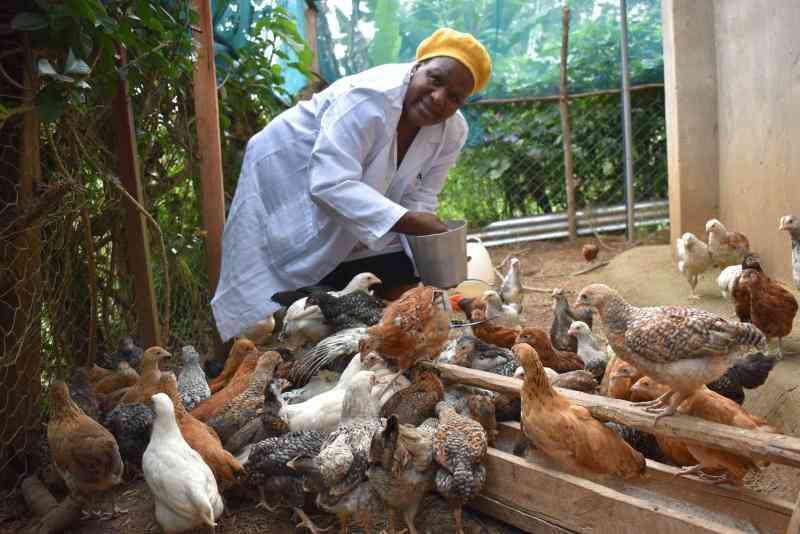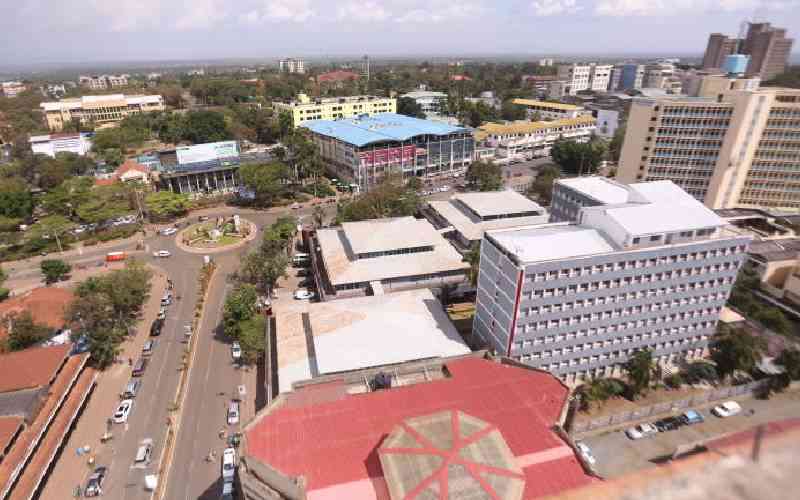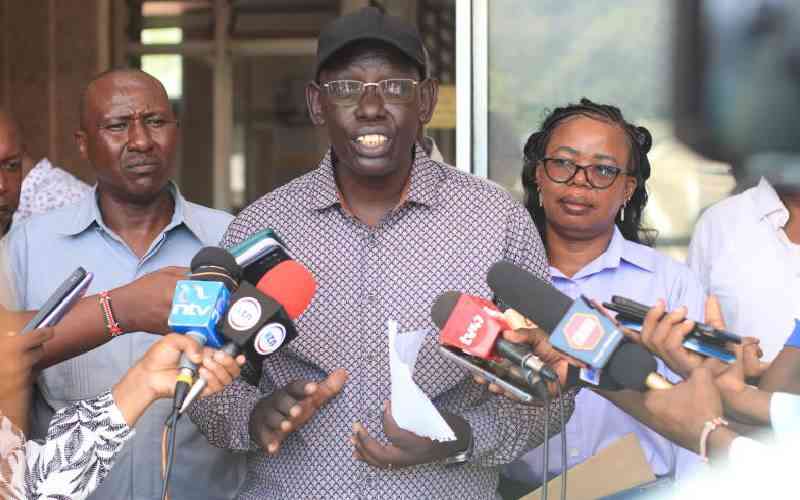By Paul Wafula
Nairobi, Kenya: A family feud to control a Sh3 billion estate of ailing city lawyer Samuel Kanogo Ritho has taken a tragic turn after the mysterious death of his wife who had won a temporary court battle to manage the estate.
The fight over the Ritho estate — which is shaping up to be the next high profile family row after that of the late business magnate Gerishon Kirima and the family that runs the multi-billion shilling Tuskys retail chain — has been reignited with reports suggesting that Mrs Gladys Ruhunga Ritho may have been poisoned.
The fallout — which started in British courts over who between the sons and wife would take care of the ailing lawyer, where he should live and who should legally control the estate — has now escalated into a one-month standoff on the burial of Mrs Ritho back here in Nairobi. She died on October 14.
Mr Ritho, who was the Chief Adjudication Officer at the then Ministry of Lands and Settlements in the 1990s before switching to the legal profession, owns over 30 prime real estate properties in Nairobi’s Kileleshwa, Loresho and Eastleigh estates.
Described by an impeccable family source as a ‘strict disciplinarian’, Ritho also has properties in Mombasa, Kilifi, Malindi and Murang’a.
Conservative estimates by the wife’s lawyer valued Ritho’s estate at Sh3 billion. The property attracts a Sh5 million rental income every month.
Mr Ritho founded SK Ritho & Company Advocates, where he practised law until 2009, when he suffered a stroke. He was then moved to London for further treatment, marking the beginning of trouble for the family.
Excessive bleeding
“After he recovered from the stroke, Mr Ritho got born again. He started living what he thought was a normal life, being there for his family, going to church. But this changed after he went to London,” a family source says.
Before she died from what doctors say was “excessive bleeding”, Mrs Ritho fiercely fought four of her children in both the Kenyan and British courts to take charge of the estate. They had been married for 47 years. She had also tried in vain while in the UK to bring her ailing husband back to Kenya.
She had also been struggling to make ends meet after she was cut off from the family fortune, forcing her to turn to the courts.
Mrs Ritho won the first round of the Kenyan case last May when she received an injunction stopping six of her children from running the multibillion estate. Initial post-mortem examination results have pointed investigators towards poison, but pathologists have ordered for three sets of tests, among them a toxicology report to give conclusive answers on what killed Mrs Ritho.
“The deceased, who is aged 70 years, complained of stomach ache. She started vomiting and she was rushed to Mater Hospital where she died while undergoing treatment,” read a police report requesting the government pathologist to examine her body.
“As a result of my examination, I formed the opinion that the cause of death was disseminated intravascular coagulation (DIC) pending histology, serology and toxicology,” Dr Oduor Johansen, government pathologist, said in his preliminary report. The same conclusion was made by Dr Emily Rogena, a lecturer at the University of Nairobi’s department of human pathology.
Stay informed. Subscribe to our newsletter
Spring Valley police, who have been investigating the case, forwarded specimen to the government for a full toxicology, a test done to detect if poisoning was the cause of the abnormal bleeding, referred in medical parlance as disseminated intravascular coagulation (DIC).
Abdominal pains
Also to be tested is a list of 11 food items picked from Mrs Ritho’s Loresho home among them vegetables, cooked yams, a packet of fresh milk, fried fish and chicken. Police are also investigating one of her cooks at the Loresho residence.
Pursuing the poisoning angle, The Standard on Saturday has also learnt that a section of the family has also taken specimen to South Africa.
“We have taken samples to South Africa for more tests because we believe there was foul play given the nature of her death. She deteriorated and died so fast. We expect results in the next one week or so,” a close family member told The Standard on Saturday.
The post-mortem examination reports showed Mrs Ritho developed severe abdominal pains after a meal while at home.
Mrs Ritho was taken to MP Shah Hospital as an outpatient. She had a ‘bloody diarrhoea and vomiting’ for two days. At home, the pain worsened. She was taken to Mater Hospital, where she died on October 14, after five days at the hospital.
It is understood that the hospital has blocked at least two attempts by one of her sons to pick her body for burial without the consent of the rest of the family.
The fallout has split the family into two, putting on hold burial plans until Mr Ritho, who is currently in London for treatment, confirms that he is aware of the death of his spouse.
Mrs Ritho, who taught at Kileleshwa Primary School for many years before retiring, told The Standard on Saturday a year before she died how she fought and lost the battle to bring her husband back home.
The most visible part of the fallout is the standoff on how she will be buried.
“We will not bury her unless we are certain that Mr Ritho indeed knows that his wife is dead and gives us the direct instructions on where to bury her. This we have requested can even be done via Skype if the old man is not able to travel or even put him on a speaker phone to speak to his family in Nairobi,” the family source said.
Attempts to contact Mr Ritho through the UK embassy in Nairobi have been futile.
[email protected]
 The Standard Group Plc is a
multi-media organization with investments in media platforms spanning newspaper
print operations, television, radio broadcasting, digital and online services. The
Standard Group is recognized as a leading multi-media house in Kenya with a key
influence in matters of national and international interest.
The Standard Group Plc is a
multi-media organization with investments in media platforms spanning newspaper
print operations, television, radio broadcasting, digital and online services. The
Standard Group is recognized as a leading multi-media house in Kenya with a key
influence in matters of national and international interest.
 The Standard Group Plc is a
multi-media organization with investments in media platforms spanning newspaper
print operations, television, radio broadcasting, digital and online services. The
Standard Group is recognized as a leading multi-media house in Kenya with a key
influence in matters of national and international interest.
The Standard Group Plc is a
multi-media organization with investments in media platforms spanning newspaper
print operations, television, radio broadcasting, digital and online services. The
Standard Group is recognized as a leading multi-media house in Kenya with a key
influence in matters of national and international interest.









